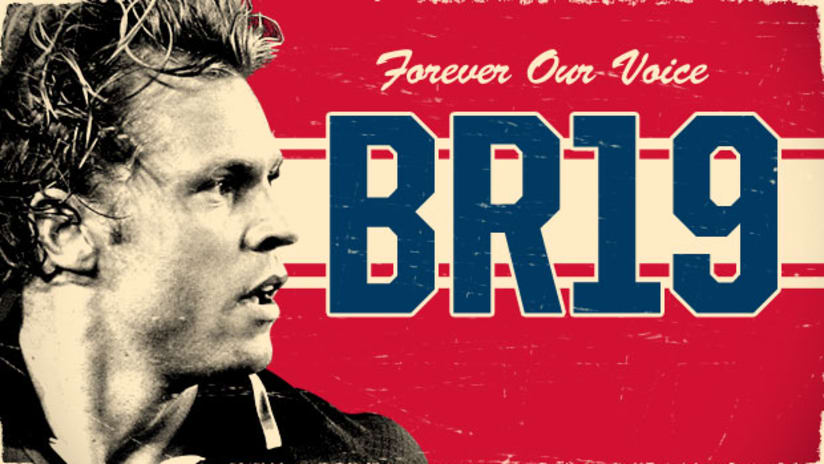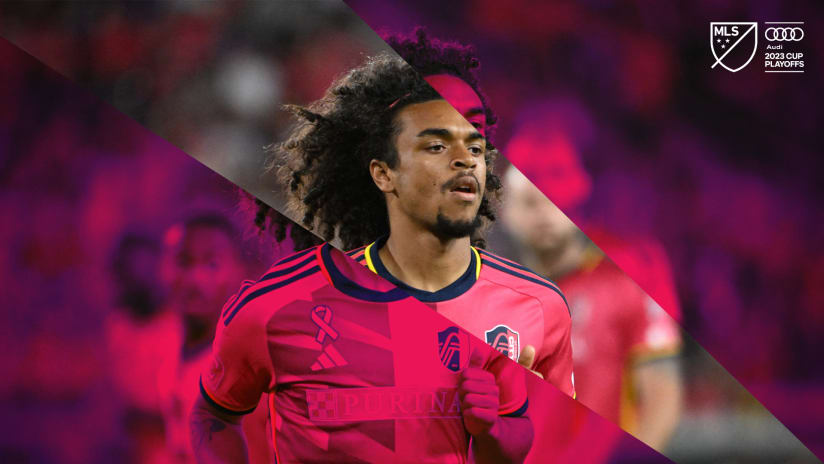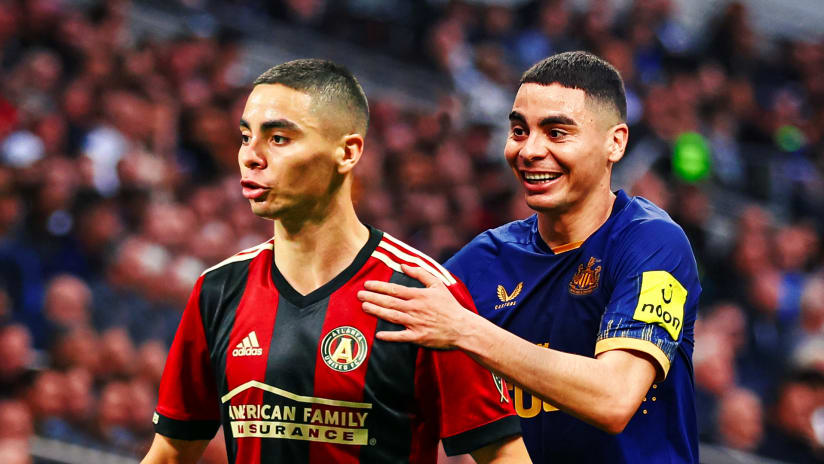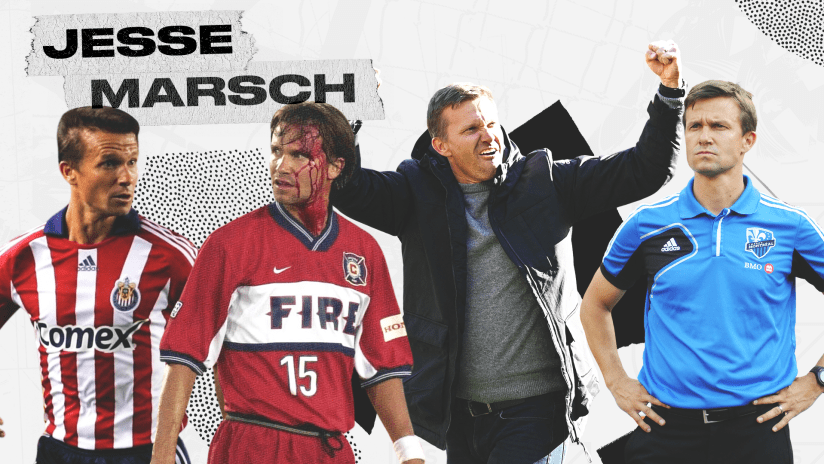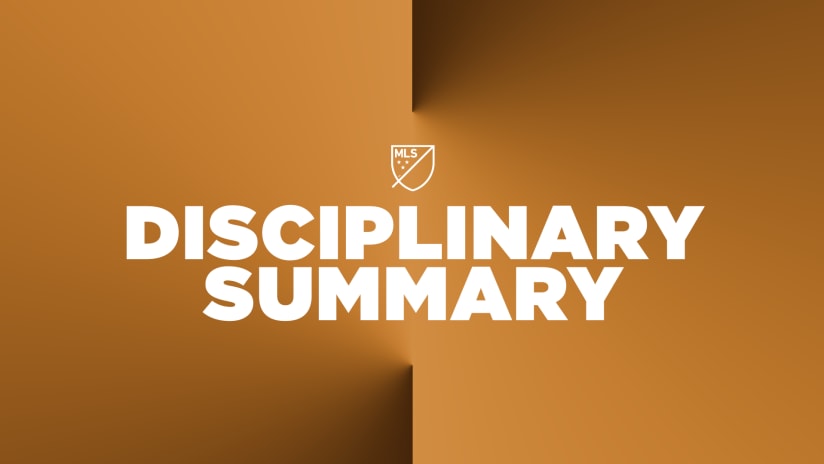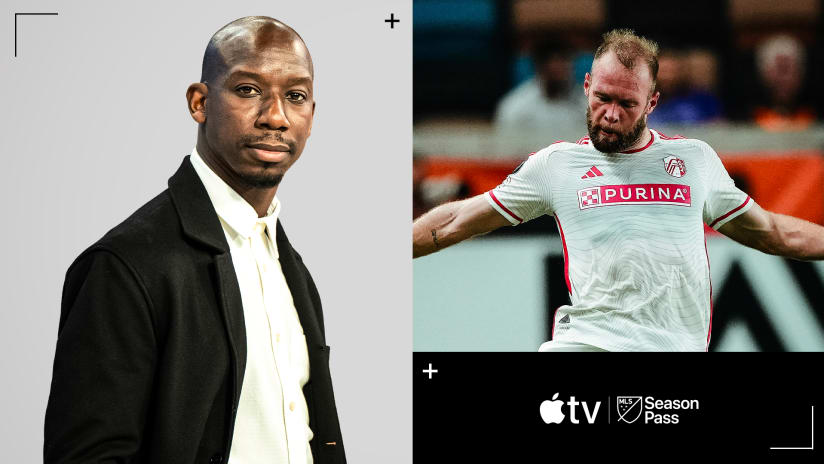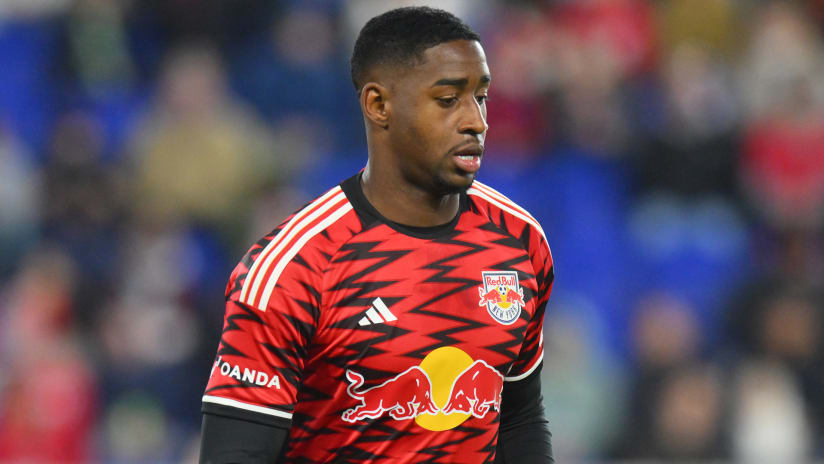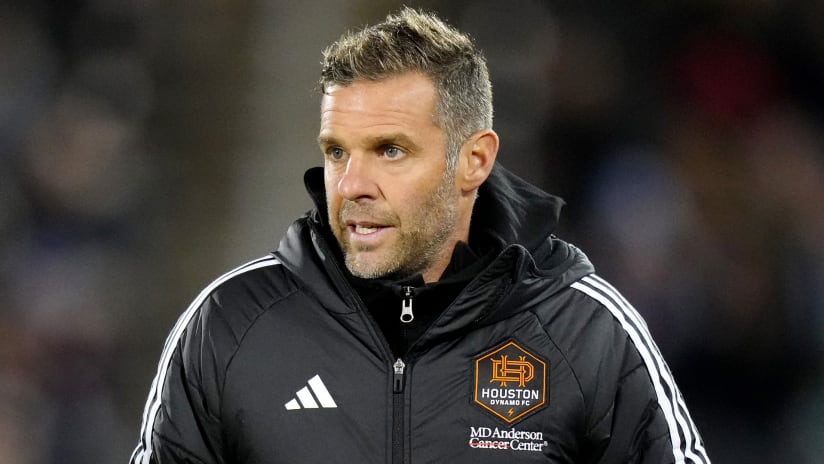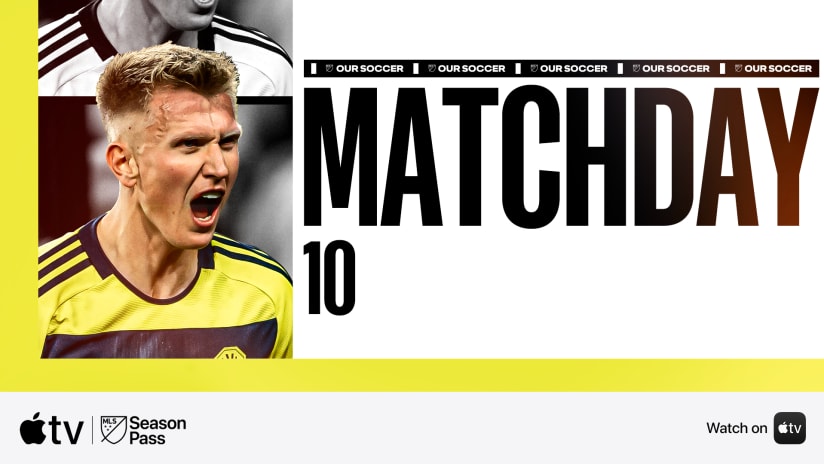THE WORD is MLSsoccer.com's regular long-form series focusing on the biggest topics and most intriguing personalities in North American soccer. This week, senior editor Nick Firchau examines the sudden death of former FC Dallas star Bobby Rhine in 2011, what his passing meant for an emotional soccer community in Dallas and where his family is now, two years later. Homepage photograph courtesy of Rick Yeatts, illustration by Gabriel de los Rios.
Bobby Hammond awoke early on the morning of Tuesday, Sept. 6, 2011, to find his cell phone buzzing with the missed call of old friend and FC Dallas color commentator Steve Jolley.
Hammond, the longtime team administrator for the Dallas Burn and FC Dallas who was one of the franchise’s first hires back in 1995, immediately suspected that Jolley had dialed him by accident. There was no pressing issue so early that morning, considering the team was just returning from a bye week and Jolley was home in Philadelphia with his family.
Still, Hammond returned the call. When Jolley failed to answer, Hammond went about his day and began the trek from his house in Plano to the team’s offices in Frisco, a roughly 20-minute drive past golf courses and shopping centers and through the sprawling suburbs of northern Dallas.
Around 7:30 am his phone rang, with Jolley on the end once again, and Hammond picked up.
He was heading north on Independence Rd., he remembers that. He was about 10 minutes away from the stadium. Not long after the conversation began, Hammond forced his car to the shoulder of the road, the only thing he could think to do to absorb the news that by mid-morning trickled into every locker room and board room in Major League Soccer.
Hammond’s good friend and longtime Dallas player Bobby Rhine had suffered an apparent heart attack the night before while on vacation with his family in Florida. And inexplicably, somewhere far away from his home in Dallas, Bobby Rhine was dead. He was 35 years old.
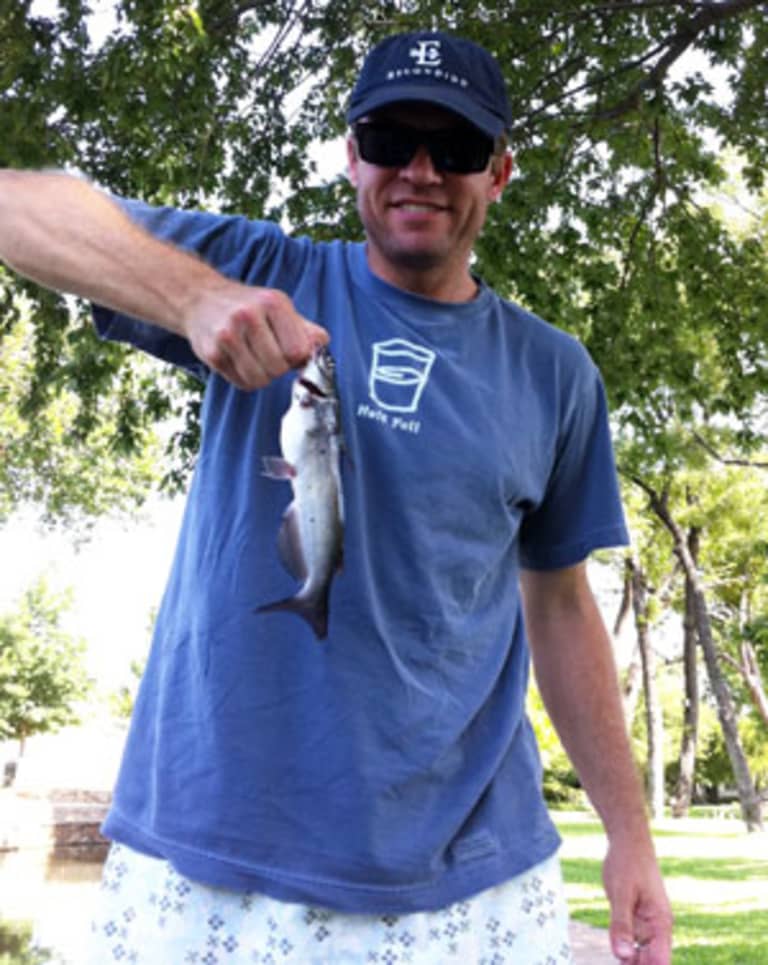
Bobby Rhine's obituary called him "a devoted coach, king of corny jokes and master angler of Caruth Park." He was 35 years old when he died.
(Photo courtesy of Bevan Rhine)
When Hammond arrived at the FC Dallas offices later that morning he quickly realized he was one of the few who had heard the news. Jolley had called only a handful of people at the request of Rhine’s widow, Bevan, and an unsuspecting calm filled the office while Hammond waited for the news to break.
Stranger still was the view from his desk. Not far from Hammond was where Rhine was expected to be later that morning or the next, and where he sat nearly every day.
“I’m sitting there at my desk, and I know Bobby’s not coming in today. He’s not coming in again,” Hammond recalls. “Honestly, how am I supposed to work and not cause a scene?”
Colorado Rapids defender Drew Moor and New York Red Bulls midfielder Dax McCarty – both former Rhine teammates in Dallas – broke down in tears in locker rooms thousands of miles apart. Jason Kreis and Jeff Cassar – Rhine’s close friends from their days in Dallas, now on the coaching staff at Real Salt Lake – scrambled to get on a plane to Dallas. Jolley, who had welcomed his first child into the world just days before, headed west to help bury his friend.
And Bevan Rhine carried out all the tasks she could control, but hopelessly contemplated the things she couldn’t. Her husband’s death had come so suddenly – Bobby passed away within 60 minutes of showing the first signs of trouble – she only considered in the hours following that it somehow could have been avoided, even if one variable had been different.
Now, on the two-year anniversary of his death, Bevan considers her children, her past and her future, and ponders what a number of his friends still do: What would life be like if Bobby was still here?
---
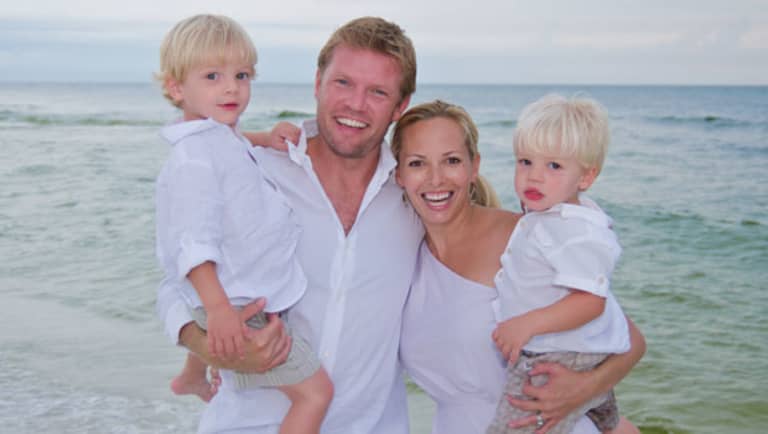
The Rhine family in August 2010 in Seaside, Florida, from left to right: Jake, Bobby, Bevan and Miller.
(Photo courtesy of Bevan Rhine)
---
FC Dallas ran headfirst into the teeth of their summer schedule in August 2011, which coincided with the hottest summer on record on the Texas plains.
Dallas residents were weary by the end of it, having endured a record 70 days with 100-degree temperatures, including a blistering 110-degree reading in Ft. Worth in early August.
FC Dallas trudged through the heat and an unforgiving stretch of eight games in 27 days that month that included trips to Canada, Mexico and finally Seattle, where the club was bounced from the U.S. Open Cup semifinals by the Sounders on Aug. 30.
With Labor Day Weekend approaching the Rhine family geared up for a short beach vacation to the Florida panhandle community of Seaside, where they’d visited regularly in the past.
The break was a deserved one for Rhine, who was in his second year as the team’s play-by-play man after first showing promise as a color commentator in 2009. He made the jump to the broadcast booth shortly after his 2008 retirement and within a short time had become the voice of FC Dallas, and one of the best play-by-play men in the game.
He and his wife, Bevan, were also the parents of two mop-topped young boys – three-year-old Jake and two-year-old Miller, both spitting images of their father – and they welcomed the chance to vacation on the Gulf of Mexico after the record-setting heat wave.
As the Rhines headed to Florida they pledged to shut MLS and much of the world out in favor of their vacation, powering down their laptops and their cell phones for the duration of the trip.
Rhine sent one last message to his followers on Twitter on Aug, 31 before he went dark, referencing a song lyric by Austin-based pop/folk musician Bob Schneider.
“1st weekend w/o a telecast since April 8th,” he tweeted. “Going off the grid for some beach time. Cup full of seeyoulaterade.”
Once they arrived in Florida the Rhines planned on meeting up with an old friend of Bevan’s driving down from Atlanta. With the friend and her daughter in tow the group hit the beach in Seaside on Aug. 31, but sour weather soon sent them scurrying indoors for much of the rest of the trip.
Tropical Storm Lee rolled through the Gulf of Mexico the first week of September and eventually stalled off the coast of Louisiana, lashing the area with heavy wind and rain. The Rhines and their friends trickled back out to the beach during the rare moments when the clouds broke, but were resigned to the fact they would have to extend their trip an extra day in order to make it worthwhile.
The Rhine family originally intended to return to Dallas on Labor Day, Sept. 5. But instead they postponed their departure until Tuesday, with hopes of basking in the sun one last time before heading home.
---
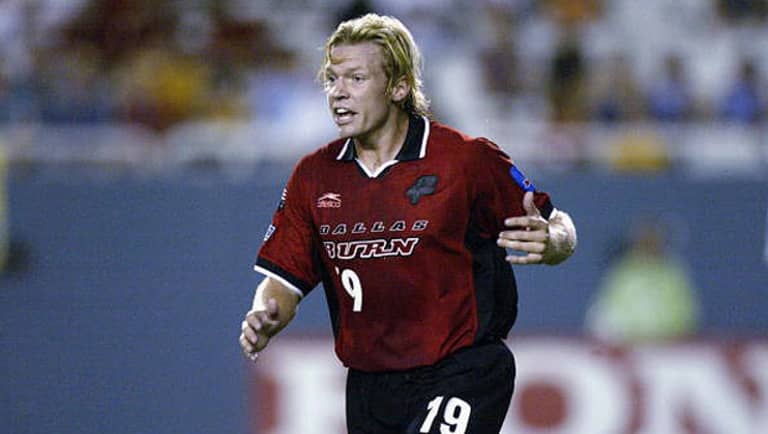
Rhine (pictured here in 2002) spent 10 seasons in Dallas, playing forward, defender and midfielder before he retired.
(Getty Images)
---
Roughly two months before his vacation, Rhine traveled with FC Dallas to Salt Lake City to call a road game on July 9, and to reacquaint with old friends.
In the days leading up to the match, Real Salt Lake head coach Jason Kreis and goalkeepers coach Jeff Cassar took Rhine on a mountain bike ride on the trails behind Kreis’ home outside Park City, a welcome reunion among former Dallas teammates and men with the same perspective on life.
All three hailed from the Midwest – Rhine from St. Louis, Kreis from Omaha and Cassar from the suburbs of Detroit – and their shared enthusiasm for balancing soccer and their families kept them connected long after they played their last game together as teammates in Dallas.
“It doesn’t take a lot to make us happy, as long as you’re good to each other,” Cassar says of the group. “We wanted to go to work and work hard, and come home and be awesome parents. We all just wanted to make a good family.”
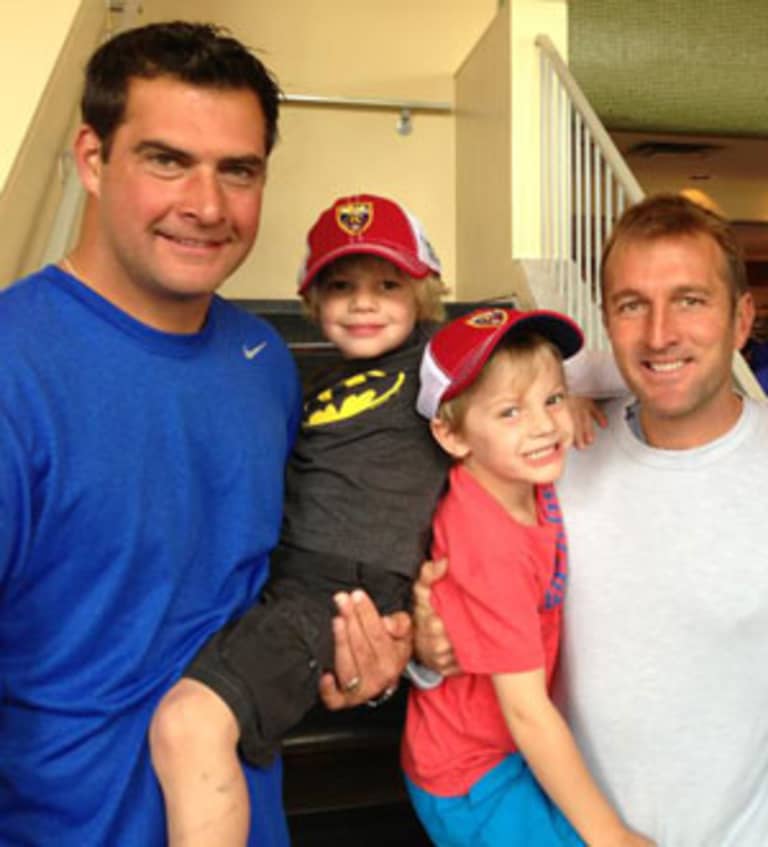
Real Salt Lake goalkeepers coach Jeff Cassar (far left) and head coach Jason Kreis (far right) pose for a photo with Rhine's sons. The two tried to recruit Rhine to join their coaching staff after he retired, but he never left Dallas.
(Photo courtesy of Bevan Rhine)
The bond was strong enough that not long after Kreis was traded from Dallas to Salt Lake in 2004 he lobbied to his coaches to make a trade to bring Rhine to Utah. By the time Kreis took over as head coach in 2007 he says he tried unsuccessfully to trade for Rhine every six months, and the two later discussed an assistant coaching job with RSL after Rhine retired.
“I just knew he was a guy who fit the exact mold of what I was trying to build in Salt Lake,” Kreis recalls, “and I thought he would be a terrific part of that.”
Rhine scored 23 goals and added 34 assists in 212 games over his 10-year career in Dallas, and appeared in another 13 games in the postseason. Drafted out of Connecticut as an All-American forward he enjoyed years as an effective finisher in front of net – including a career season in 2002, with seven goals and six assists – but he later platooned at right back beginning in 2005, and he closed the last two years of his career in the midfield.
Over the years Rhine’s dogged work ethic, charismatic personality and remarkable soccer IQ made him indispensable in the locker room, and lifted him into rare, respected company around the league. What New York had in Mike Petke, Chicago found in C.J. Brown and RSL discovered in Kyle Beckerman, Dallas had in Rhine. He became a symbol of the organization.
“Everybody wanted to be on Bobby’s side in training, because they knew he was going to work hard in all those games, and more than times than not, Bobby’s team was going to win,” said former Dallas coach Collin Clarke, who coached Rhine between 2003-06. “In order to win games in MLS back then, you needed one, two or three Bobby Rhines on your team. I’d say the same is still true today.”
Bevan says after Rhine retired she and her husband had playfully picked out homes around Salt Lake City a number of different times and considered the options on the table, but Kreis knew better.
“No way,” Kreis says. “FC Dallas was his family.”
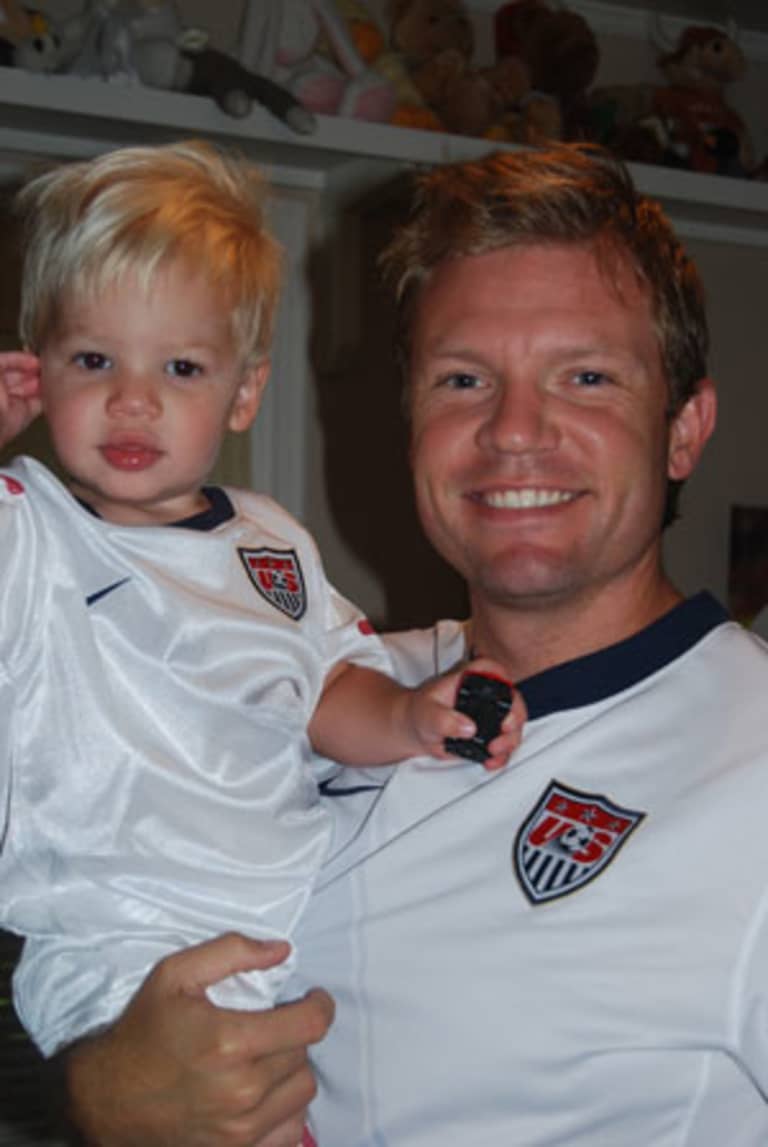
Rhine with his younger son Miller, during the 2010 World Cup.
(Photo courtesy of Bevan Rhine)
Kreis and Cassar also knew what most others didn’t – that by the summer of 2011, Rhine was dealing with a rare heart condition called myocardial bridging, a congenital coronary anomaly. Myocardial bridging occurs when a coronary artery dips underneath a band of heart muscle instead of lying on top of it, as is the case in a completely healthy heart. This passing of the artery under the bridge of muscle can potentially lead to pinching or squeezing of the artery when the muscle contracts, and that squeezing decreases blood flow and can lead to myocardial ischemia, when the heart muscle is not getting enough oxygen-rich blood.
Although surgery is an option for serious cases of myocardial bridging, patients can live their entire lives with the condition and never experience symptoms. Medicines such as beta-blockers and calcium channel blockers are a typical line line of treatment, according to the Texas Heart Institute, but fatalities linked to myocardial bridging are rare, especially after diagnosis.
Although the condition never caused any issues during his playing days in Dallas, Rhine complained of chest pains at a family wedding in Galveston, Texas on New Year’s Eve 2011 and had to be hospitalized, where he was diagnosed. He was placed on medication for high blood pressure and an aspirin regiment, and given medication to relax any coronary muscle spasms if something similar occurred again.
By that summer, however, there had been no further serious incidents. Rhine kept the diagnosis largely secret among family and close friends and exercised regularly, played with his small children and worked one of the busiest stretches of his broadcast career, complete with travel, without any cause for concern.
“He was doing fantastic,” Kreis recalls. “You would have thought he was 100 percent healthy and everything was 100 percent go. He was doing a pretty rigorous aerobic activity and he was right there with us.
“Apart from an episode here or there,” Kreis adds, “I think he lived the life he wanted to.”
Rhine eventually mentioned his condition to some of the others in his circle – his broadcast partner and close friend Jolley, the longtime Dallas administrator Hammond and his broadcast producer Jim Feldman, among others. He and Jolley spent countless late nights after FC Dallas broadcasts talking about work and family, and Rhine’s health became a regular talking point that summer, but everyone seemed to trust that he and his doctors were managing the condition.
“He got a second opinion and the second opinion assured us that it could be managed,” Jolley says with a sigh. “You know … what can you do after that?”
---
Rhine made his broadcast debut in April 2008 while on the injured list for FC Dallas. He was the team's play-by-man by 2011.
(Video courtesy of FC Dallas)
---
On the afternoon of Monday, Sept. 5, the Rhines took their children to the arcade in the Seaside hotel where they were staying. Not long after arriving, however, Bevan knew something was wrong.
Having witnessed Rhine suffer through the previous episode in Galveston she knew he was in distress almost immediately, and she helped him outside of the arcade. Breathing exercises had helped Rhine overcome minor episodes in the past and she gave him room to try the same this time, but it became obvious he was in need of his medication, located back up the elevator and in the hotel room.
Bevan hustled her husband and their children into the elevator and back to the hotel room, where Rhine laid down on the bed to try and relax. Like most patients under the risk of sudden cardiac arrest, Rhine was prescribed nitrate pills to dilate the arteries to the heart and increase blood flow, and with Rhine prone on the bed, Bevan began to place the pill in his mouth.
At that point Rhine went into shock and bit down on Bevan’s finger hard enough that she couldn’t remove it from his mouth, and it became clear Rhine had gone into cardiac arrest. She administered a second nitrate pill and called 911, and both boys watched helplessly as she performed CPR while waiting for medical help to arrive.
The ride to Sacred Heart Hospital in nearby Destin was a quick one and despite the severity of the situation, Bevan assumed her husband would pull through. She says paramedics told her he was breathing during the ambulance ride, and she assumed that meant he would be intubated at the hospital. Emergency open-heart surgery to fix the condition was the worst-case scenario.
But shortly after the group arrived at the hospital, a Sacred Heart doctor greeted Bevan in the waiting room and told her that her husband had passed away. Her best guess is that the entire episode lasted 40 minutes, and that he died sometime around 5:30 or 6 in the evening.
Six months after Rhine's death another soccer player an ocean away, Bolton Wanderers midfielder Fabrice Muamba, went into cardiac arrest during a match in London. Muamba reportedly received numerous defibrillator shocks both on the field and in the ambulance – something Bevan says was never administered by paramedics before they reached the hospital – and later survived, despite the fact that his heart stopped beating for 78 minutes during the episode.
Bevan references that story on her own, in part because she wonders if her husband was given the same opportunity to live.
“Part of me feels like they didn’t wait long enough to decide if he was gone.” she says. “I don’t know if he would have come back, but there were always so many what-ifs that circulated in my head.”
After Rhine passed she went into his hospital room and held his hand, sat on the bed and wept. She had already made two calls in the ambulance pleading for help – to her parents in Dallas and to her friend from the vacation, who had already left for Atlanta – and she had called both of them back to tell them Rhine had died.
She remembers calling Rhine’s parents and his best friend Evan Milone, who played with Rhine at Connecticut. She called his college coach at Connecticut, Ray Reid. She called her minister in Dallas, the man who had officiated their wedding in 2004, and she called the boys’ pediatrician to ask if it was OK for them to see their father.
She lay there holding his hand for 90 minutes before she heard Rhine’s voice in her head, urging her to move forward.
“I’m OK, go take care of the boys,” she recalls him saying. “They need you, I don’t.”
She let the boys in, they embraced in a family hug, and set out to return to Dallas the next morning.
---
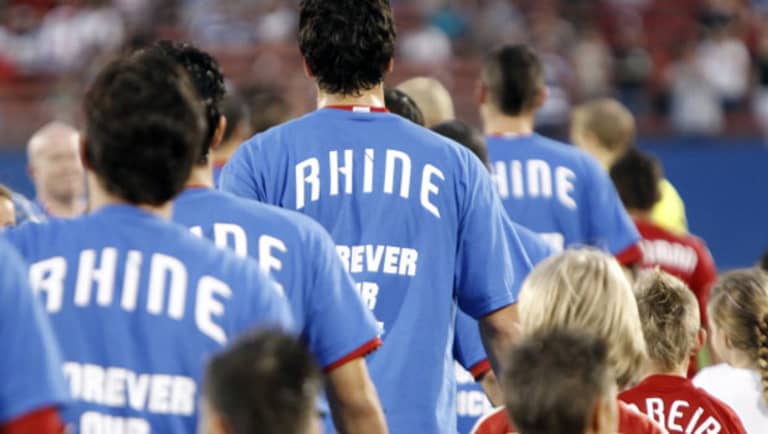
FC Dallas and their players paid tribute to Rhine during the first home game after he passed away, on Sept. 17 in Frisco.
(Getty Images)
---
Perhaps the best indicator of what Rhine meant to Dallas and Major League Soccer isn’t expressed in an anecdote about his playing days. It’s not about all the positions he played, the pranks he pulled or how he gracefully accepted retirement in 2008, when his body simply couldn’t do what his mind asked it to anymore.
His real measure shone through on Thursday, Sept. 8 in the line that snaked outside Sparkman Hillcrest Funeral Home in Dallas. It took up to four hours for some visitors to make it through and see his body that night, and a number of players who had played with Rhine flew in, waited in line, and left town the same night to make their games on Saturday.
The funeral on Friday morning filled Northway Christian Church, larger than any Christmas or Easter services in recent memory. Kreis and Cassar had flown in Thursday ahead of a game in Seattle on Saturday, and Jolley had rushed down from Philadelphia just days after the birth of his first daughter. All three served as pallbearers.
FC Dallas played at New England on Saturday and the players were unable to attend the service, but they attended the wake on Thursday. A number of the team’s staff members and Rhine’s college friends and coaches from Connecticut were there for the funeral, though, along with enough fans and friends to make the ceremony a walk down the lane of Dallas soccer.
“And everyone had the same look on their face,” says Feldman, one of the club’s longtime television producers. “Everyone looked like, ‘I can’t believe that I’m here and I can’t believe this is happening.’”
Bevan, meanwhile, sat with her children and kept her head down in mourning for most of the reception, which is something she regrets now. She never fully understood the breadth of emotion in the room.
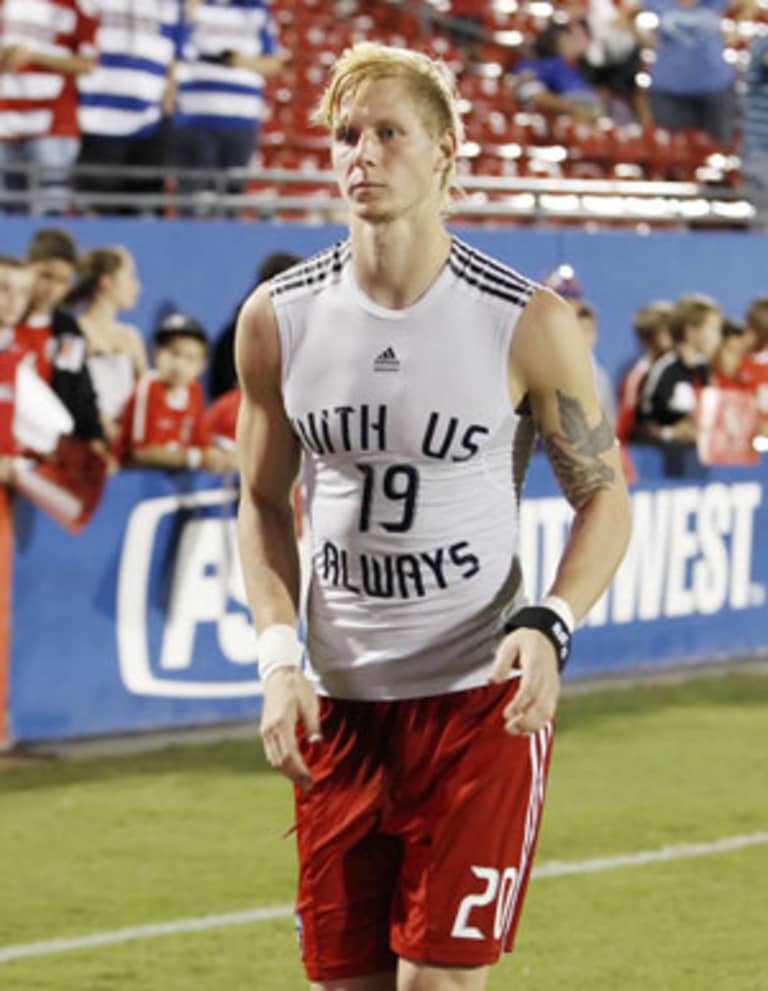
Former FC Dallas midfielder Brek Shea paid tribute to Rhine during the team's match on Oct. 15 2011, donning a shirt that honored his former teammate's signature No. 19.
(Getty Images)
“To see her anywhere without Bobby didn’t make sense,” says Oscar Pareja, Rhine’s former Dallas teammate and now the head coach for the Colorado Rapids. “I was just trying to understand what I was seeing – these three people looking so fragile, because Bobby wasn’t there any longer.”
Before the funeral Bevan asked her two boys to find something that was special to them and place it in the casket with their father before he was buried. Miller, the younger son who Bevan says doesn’t remember seeing his father pass away, chose a plastic toy shark that Rhine bought him on the trip to Seaside.
Jake, who turns six years old later this month and does remember the episode in the hotel room, made a new heart out of Play-Doh and slipped it into his father’s jacket pocket.
During the wake the night before, Hammond stepped outside of the funeral home to the sidewalk for some fresh air and a chance to reflect on the moment. Hammond picked Rhine up at the airport after he was drafted in 1999 and later sat with him on nearly every flight during their days in Dallas, drawn to Rhine’s magnetic charm and his willingness to do almost anything to represent the organization.
A young FC Dallas player approached Hammond on the sidewalk and quietly confessed that he was upset about Rhine’s passing, but he had never played with Rhine and only knew him as the team’s play-by-play broadcaster. A number of the other younger players felt the same, he said, simply because they’d never seen all the things they’d heard about.
“I just thought, ‘how unfortunate for you,’” Hammond says. “It was sad to realize that his stamp on the league had fallen off just because he wasn’t in the locker room anymore.”
Hammond quit working for FC Dallas after 17 years with the club last November. He still swaps stories with friends who knew Rhine and adored him, but he’s also well aware that time is passing in Dallas. When the younger generation of players Rhine influenced – players like McCarty, Moor, Brek Shea, Kenny Cooper, Eddie Johnson and Brad Davis – moves on, who’s left to remind the next generation about Bobby Rhine?
“It’s their loss that they didn’t get to know Bobby,” Hammond says. “They didn’t know what he put into this, or what kind of guy he was.”
---
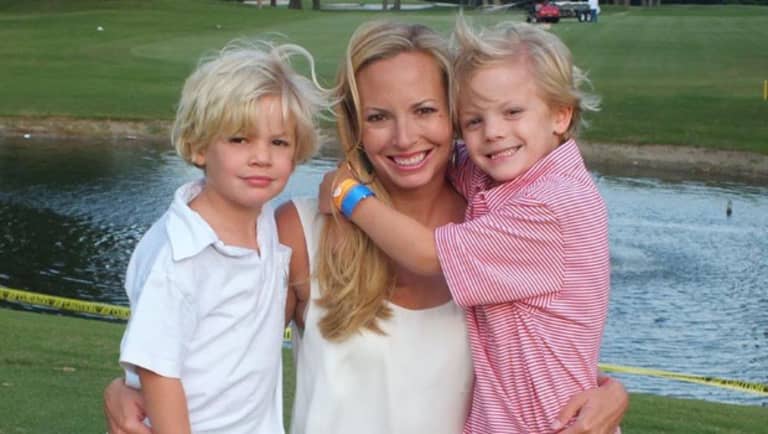
Bevan and her sons MIller (left) and Jake in July. They returned to Seaside this summer, their first visit since Rhine's passing,
(Photo courtesy of Bevan Rhine)
---
Milestones are tough in the Rhine family, and they’re coming fast and furious now. Not just the anniversaries of his passing, but also those of the routine variety that he should have seen as a father: the first loose tooth, the first day of soccer practice, the first day of school.
And now Bevan handles her sons’ questions about their father when she least expects them. She was in the car on the way to the grocery store just recently when the elder son Jake stopped a conversation about dinosaurs to ask his mother, “are you and daddy still married?”
“Yeah buddy,” she answered. “I think we are.”
Bevan sought out as much normalcy as she could after her husband’s death, which meant a return to work as a commercial litigator in Dallas not long after Rhine passed away. Once slated for a job in Washington, D.C., after an internship at the White House during law school at Southern Methodist University, she stopped considering a move after she met Rhine in 2001. She’s not sure if she’ll ever leave now.
Bevan and her children still live in the same house they did before Rhine passed away, which has become more of a shrine to his career in the past two years than it ever was during his playing days. She has framed images, jerseys, paintings from fans and, most importantly, video clips of his days with Dallas that four-year-old Miller watches before he goes to sleep.
FC Dallas played a tribute match to honor Rhine in the first home game after his passing on Sept. 17, and a month later inducted him into the team’s Hall of Fame. They hung a banner with Rhine’s initials and his jersey number in front of the broadcast booth, and when Real Salt Lake beat Dallas earlier this summer for the franchise’s first-ever win in Texas, Kreis quietly snapped a picture of the banner to take back to Salt Lake City before he left the field.
Other friends have their mementos, too. Ask around long enough about Rhine and it’s clear most who knew him even briefly have saved his number in their phone or emails on their computer, and they have no plans to delete them. Most still follow him on Twitter, though the account has been dormant for two years.
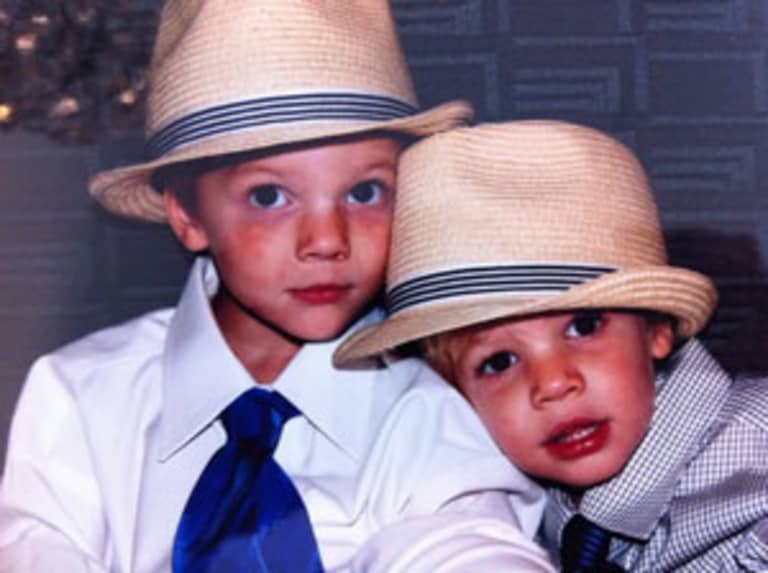
Jake and Miller on Father's Day, 2011. This is the photo that Rhine kept on his desk in his office at FC Dallas.
(Photo courtesy of Bevan Rhine)
The FC Dallas staffer tasked with finding archive photos for this article, for example, gladly responded not only with more than 100 action shots of Rhine’s days on the field, but also with this: “A search for ‘Rhine’ on my computer turned up old e-mails with him, too … so thanks for indirectly delivering a smile on my Friday.”
One of Bevan’s hardest tasks now is to understand how her sons will grieve their father’s death, or if they’ve even begun to process what happened. Jake and Miller spent roughly a year in regular sessions of play therapy to help her better understand what to expect and how to deal with their behavior, but it’s not an exact science. When one boy acts out in school she’s still not quite sure if it’s a result of their grieving process. She wonders if she should discipline them or hug them even tighter.
“I haven’t noticed any remarkable changes in their personality,” she says, “but who’s to say what they’d be like if he was still here?”
Not long before Rhine’s passing the family instituted “listening jars” for the boys, to encourage good behavior. When either of the children did his chores he would get a coin and place it in his jar, and he could use the money to buy a toy when the jar was full.
At the funeral Bevan asked the boys to place a handful of coins in Rhine’s casket. Now whenever she or the boys find coins they call them “daddy coins.”
“That’s how we know he’s thinking of us,” she says.
Bevan’s one regret is the rush to get Rhine back to Dallas after he passed. She was so concerned about scheduling the funeral ahead of the weekend so former players and coaches could attend, she declined the opportunity to have an autopsy performed on Rhine’s body in Florida. She assumes myocardial bridging was the cause of death and she knows it’s not a hereditary condition, but for the sake of peace of mind, perhaps a clear answer would have put to rest any future concerns about her sons.
The family observed the first anniversary of Rhine’s passing in 2011 with a party, just the way Rhine would have wanted. This year, however, she plans on a more subdued memorial. The family went back to Seaside for the first time this summer, and they’ll almost certainly visit Rhine’s gravesite at Sparkman Hillcrest in Dallas on Thursday, where the boys will write messages to their father on helium-filled balloons before letting them drift into the sky.
And when the thoughts and wishes of two little boys finally disappear out of sight high above north Texas, they will know their father is still listening.

